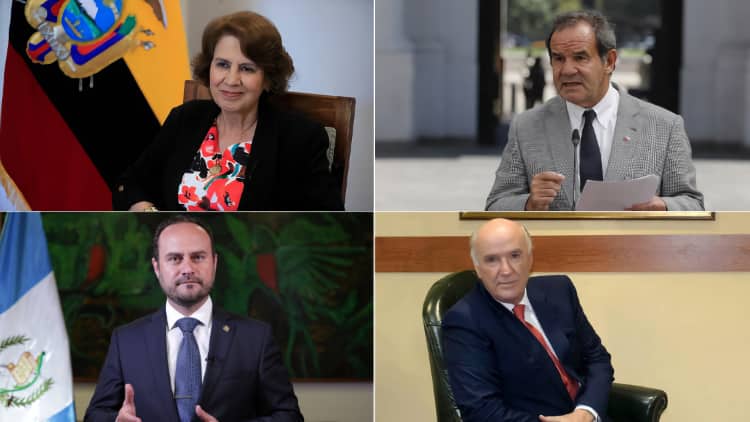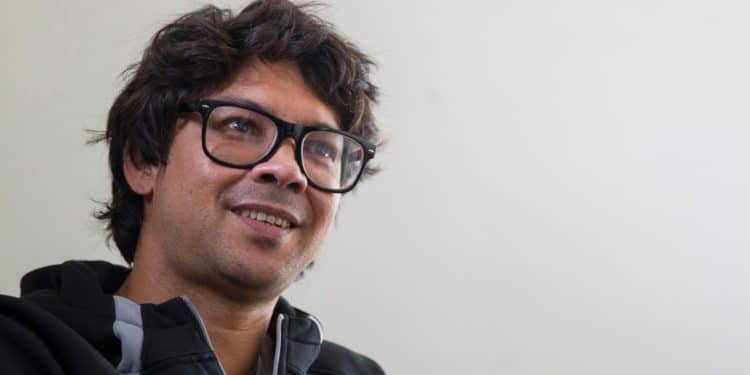Luis Ayllón
The foreign ministers of the Ibero-American countries are meeting today, in Santo Domingo, to prepare for the Ibero-American Summit in 2022 and to try to reach a consensus on the person who will head the Ibero-American General Secretariat in the coming years.
On the table of the foreign ministers will be four candidates who have been formally presented by as many countries in the region, to fill the vacancy left a few months ago by the Costa Rican Rebeca Grynspan, appointed secretary general of UNCTAD, the UN’s trade and development agency.
The first to make her aspirations known was the Ecuadorian Rosalía Arteaga who was vice-president of Ecuador in 1996. After the institutional crisis that occurred in the country, with the fall of the then president Abdalá Bucaram, she assumed the presidency on 9 February 1997, but resigned from the post two days later. She was also Minister of Education and President of the Foundation for the Development of Latin America.
Guatemala also long ago formalised the candidacy of its foreign minister, Pedro Brolo, who has held the post since January 2020 and who has held various positions in the Organisation of American States and has been a representative of several multinational companies.
Subsequently, Peru presented José Antonio García Belaunde, who was the country’s foreign minister between 2006 and 2011, as well as ambassador to Spain between 2016 and 2019, as a candidate for the post. In that year, he became the representative in Europe of CAF, Development Bank of Latin America, based in Madrid.
The last of the names to join the race for Segib before the deadline for presenting candidatures, on 19 July, was that of the Chilean Foreign Minister, Andrés Allamand, who has held the post since the end of July 2020 and, in 2011 and 2012, was Minister of Defence.
In all cases, these are people with extensive political careers, whose countries are seeking support from other governments. Observers believe that it is not certain that the decision will be taken at tpoday’s meeting in Santo Domingo and that it could be left for another meeting of the foreign ministers before the Ibero-American Summit is held in the Dominican Republic, scheduled for the autumn of 2022.
The election of the new head of Segib is not an easy task because it is a matter of reaching a consensus and the names of people who pose problems in any of the countries of the Ibero-American community may be ruled out.
So far, forecasts suggest that the most likely candidate is the Ecuadorian Rosalía Arteaga, who has insisted in statements she has made in recent weeks that she is committed to strengthening Segib as a space for “dialogue and consensus”, something that is of particular significance at a time when there is considerable ideological disparity between the countries of the region.
Arteaga, a former teacher and ex-Minister of Education, has also insisted on improving the quality of education in Ibero-American countries, and believes that this would be a great area for Segib to develop.
Rosalía Arteaga’s candidacy could also be supported by the fact that she is the only woman among the four candidates and by the announcement made by Guillermo Lasso’s government that Ecuador wishes to host the Ibero-American Summit in 2024.
With a more economic profile, the candidacy of José Antonio García Belaunde, former Peruvian Foreign Minister and former ambassador to Spain, who in recent years has been the representative in Europe of the CAF, the Development Bank of Latin America, is being put forward. In a social democratic line, García Belaunde has won the support of the Peruvian president, the leftist Pedro Castillo, and his background is possibly the closest to Spain, where Segib has its headquarters.
For his part, Pedro Brolo, the Guatemalan candidate, expressed his conviction a few weeks ago, during a visit to Madrid, that he could win the necessary support to be elected Ibero-American Secretary General. The Guatemalan foreign minister assured that he already had the support of Mexico and said that he hoped to have the backing of Spain. He added that, if elected, he would focus his mandate on incorporating the private sector into Segib activities.
Finally, Allamand, who has been quietly campaigning for support for some time now, appears to have not only the express backing of Chile, but also that of Colombia and Paraguay.
The Spanish government has not yet made a statement on any of the candidates, and diplomatic sources consulted by The Diplomat indicate that it will work to achieve the necessary consensus to find the ideal person for the post.
The Minister of Foreign Affairs, José Manuel Albares, who will be present at today’s meeting of foreign ministers, has already been contacted by all the candidates, who are aware of Spain’s weight in an organisation to which it is the main contributor, since Segib has had its headquarters in Madrid since its creation and our country contributes more than half of its budget, which is around seven million euros.
Since its creation in 2005, there have only been two Ibero-American Secretaries General: the first, the Uruguayan Enrique Iglesias; and then, since 2014, Rebeca Grynspan.







